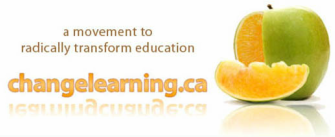|
The latest research and theories from evolutionary psychology, neurobiology and cognitive science demonstrate the various ways that humans have evolved over time to be extremely effective learners. John Abbott discusses what current research from various fields can tell us about how the adolescent brain works and how educators can work with adolescent learners to maximize their potential.
0 Comments
This Policy Proposal, from the 21st Century Learning Initiative in the UK, is written to assist those in positions of influence to initiate powerful changes to current educational arrangements. The circumstantial evidence for such a transformation of learning is drawn from the best in research and practice from around the world. The paper shows that better informed, and more effective, models of learning could be organised through a redistribution of expenditures and responsibilities, at a total cost no greater than current levels of expenditure.
If young people are to be equipped effectively to meet the challenges of the 21st century it is surely prudent to seek out the very best understandings from current scientific research into the nature of how humans learn before considering further reform of the current system.
This article by John Abbott and Terence Ryan appeared in the Spring, 1999 issue of Education Canada. Rather than thinking of the brain as a computer, cognitive scientists now utilize a far more flexible, biological analogy, where the brain is seen as a unique, ever-changing organism that grows and reshapes itself in response to use. In this article, John Abbott and Terence Ryan discuss how emerging brain research that supports constructivist learning collides head-on with many of our institutional arrangements for learning.
The article first appeared in the November 1999 issue of Educational Leadership. No curricular overhaul, no instructional innovation, no change in school organization, no toughening of standards, no rethinking of teacher training or compensation will succeed if students do not come to school interested in, and committed to, learning… We need to look, not at what goes on inside the classroom, but at students’ lives outside the school’s walls.
Laurence Steinberg, Beyond the Classroom, 1997 Read more Schools can’t do it alone.
If we truly want to provide the best learning opportunities for our kids, education needs to be more like a three-legged stool – with the structural support of home, school and community all working together. But here’s the thing. If all three legs are strong and equal, the stool is perfectly stable and functional. If one of the legs is damaged or removed, the stool can’t hold any weight. It can’t do its job, no matter how much we try to patch and reinforce the remaining legs. Read more This Policy Proposal, from the 21st Century Learning Initiative in the UK, is written to assist those in positions of influence to initiate powerful changes to current educational arrangements. The circumstantial evidence for such a transformation of learning is drawn from the best in research and practice from around the world. The paper shows that better informed, and more effective, models of learning could be organised through a redistribution of expenditures and responsibilities, at a total cost no greater than current levels of expenditure.
Most people understand that the early years are an important time in a child’s development, but recent research is painting a startling picture of how the experiences and interactions that occur from conception to age six drastically affect the trajectory of children’s lives, their success in school and who they will become as adults.
Read more |
Categories
All
Archives
August 2015
|

 RSS Feed
RSS Feed
